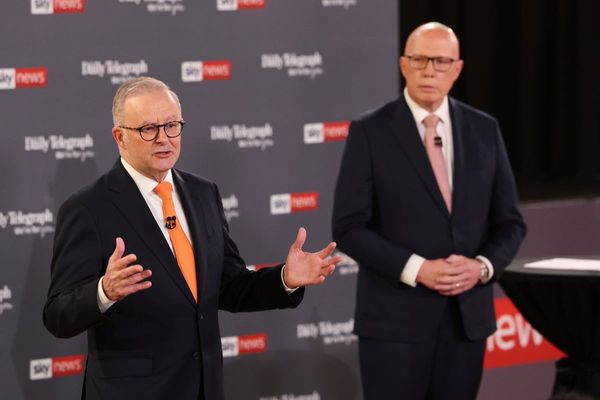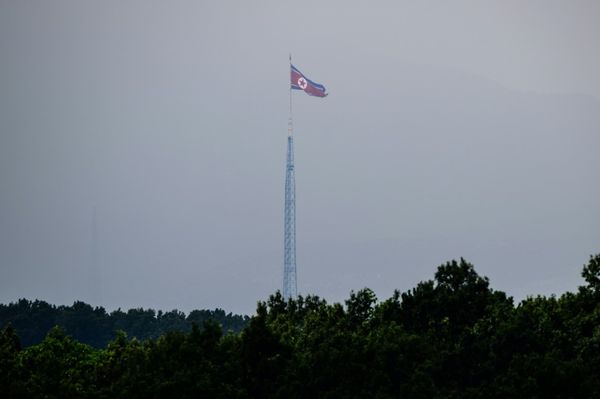As Xi Jinping seeks his third term in power in the upcoming 20th Communist Party Congress, one man is counting down to retirement.
Li Keqiang, premier of the Chinese government and the country's second-most powerful man, is expected to quit politics after 10 years of ruling China with Xi.
While Li, 67, will have to wait until March 2023 to end his role, his name will likely be excluded from the list when Congress announces the new group of Chinese Communist Party (CCP) leaders in October.
Since being appointed premier in 2013, Li has been stuck in shadow of his colleague Xi, who is known for his extensive control in domestic governance and his push for an aggressive China on the international stage.
Li was determined to lead China to further embrace the market economy when he was first appointed 10 years ago.
Instead, he is now watching China persist with Xi's stifling COVID-zero policy, while making his last attempt to boost the economic machine before he retires.
A bookish economist with a liberal mind
While Xi inherited the political legacy of his late father Xi Zhongxun, a leading party figure in the 1980s, Li came from an ordinary family.
His father was a civil servant in a small town. He later moved to a mid-level provincial position in Anhui Province, in eastern China
When he was still a kid, Li was already known for being "quiet, not naughty", and loved studying.
In 1978, Li became a law student at Peking University, the birthplace of many Chinese liberal scholars and politicians.
He later pursued a PhD degree in economics, studying under the celebrated economist Li Yining, who was a strong advocate for the free market.
During his studies he met the love of his life, Cheng Hong, who went on to become an American literature professor at Beijing's Capital University of Economics and Business by the time Li became premier in 2013.
Li was also active in student politics, and was elected as the head of Peking University's student union, later leading its branch of Communist Youth League, an organisation equivalent to Australia's Young Liberals or Australian Young Labor.
From there Li forged a career pathway in both the party and government that took him all the way to Beijing.
A reformer with high expectations
In 2013, with support from the outgoing Chinese president Hu Jintao, Li became the premier of China's State Council, also known as the central government.
It came as the Chinese government was facing extreme pressure to adjust its economic structure amid the ongoing debt crisis in Europe and economic decline in the US.
The previous year, China had recorded its lowest increase in industrial output since 2000, of just 7.8 per cent.
Li grasped the economic challenges that confronted China. In his first press conference as premier, he announced a swathe of reforms to boost the market economy.
"We need to leave the market and society [to do] what they can do well. The government needs to manage the matters that fall under its supervision," he said.
The policies, dubbed 'Likonomics', focused on reducing government intervention in the free market, including lowering taxes, streamlining business approval processes, and removing capital requirements for new companies.
He also continuously shortened China's negative list of foreign investment — a move that was welcomed by the international business community.
Neil Thomas, senior analyst at Eurasia Group, said Li's series of micro-level reforms "[made] life easier for businesses on the ground in China".
But he says while Li's policies were "good ideas in theory", he did not have enough political clout to implement them.
"These measures have helped the Chinese economy, but they lack the kind of big picture reforms that many economists believe China needs to address the problems," Mr Thomas said.
"Its growth model is still lagging."
And the main reason for this was related to one man: Li's colleague, Xi Jinping.
Xi, now 'chairman of everything', controls it all
In 2018, China amended its constitution to remove the two-term limit on the presidency, paving the way for Xi Jinping to seek his third term as leader.
However, the term limit for premier remains the same, which means Li must hand over power in March 2023.
Xi has also extended his reach to government affairs, where Li had previously taken charge, in a move that has seen the president dubbed "chairman of everything", according to Australian scholar Geremie Barmé.
As soon as he came into power within the party in 2012, Xi formed and headed a whole series of groups ranging from economic reforms, to Taiwanese affairs, to national security.
That has left Li little autonomy to set his own agenda, according to Associate Professor Victor Shih, from the University of California San Diego.
"The leading groups headed by Xi Jinping have been setting the agenda to a large extent," Professor Shih said.
"The State Council became kind of an implementation organ instead of a policy-making organ."
Saving China's economy from Xi's COVID-zero
In the year leading up to his retirement, Li is facing his biggest career challenge: how to revive an economy shackled by Xi's COVID-zero policy.
In July, China's National Bureau of Statistics announced the GDP growth in the second quarter of this year had slowed to 0.4 per cent, the lowest level since the pandemic began.
China is in the midst of a dramatic banking and mortgage crisis along with an industrial production delay due to an ongoing heatwave.
In August, Li met with senior officials from six major provinces that account for about 40 per cent of the country's economy to discuss further measures to boost economic growth.
He also visited Shenzhen, the city that has symbolised China's market reform since 1978, and paid tribute to the political architect behind it, former CCP leader Deng Xiaoping.
Beijing recently announced 19 new policies to boost the economy, after further falls were recorded in August.
Mr Thomas said the main focus of Li's remaining months in office would be balancing the economic effects of Xi's COVID-zero policy, while working within Xi's regulatory frameworks.
He says it's unlikely that Li will be able to turn the Chinese economy around before his retirement.
"What the Chinese economy needs is a series of structural reforms that address its declining demographic outlook, that improve its productivity performance, and enhance its ability to innovate," Mr Thomas said.
"And a lot of those reforms are market-oriented reforms, which appear to be politically unpalatable to make much progress in the next few years."
With Li exiting stage left, who will become China's next premier?
As China is ruled by a dominant party, its president, premier and government ministers all come from the Politburo, a small group of around 25 senior officials from the CCP.
From there, it elects seven to 11 members for the Politburo Standing Committee. The premier is chosen from this elite group.
So what kind of people are more likely to join the Politburo in October?
Professor Shih, who leads the CCP Elite Database, which tracks biographical information of thousands of elite party members, said connections with Xi Jinping would be key when it comes to eligibility for the Politburo.
This could be either through families — descendants of senior communist officials — or past working relationships with Xi.
Professor Shih said while there was still a place for officials with an ordinary background like Li to join the State Council next year, key positions would most likely be held by Xi's connections.
He also said there would be fewer leadership positions for people coming from a social science background like Li, with more politicians from engineering backgrounds having been promoted during Xi's reign.
The CCP Elite Database also shows that all current members of Politburo are of Han ethnicity, despite China being made up of 55 other minor ethnic groups.
And China is unlikely to have a female premier any time soon.
Less than 10 per cent of officials serving in the central government are women, according to China Elite Database.
"Even in a lot of Islamic countries, [some of which] discriminate against women, you typically will see a higher ratio. And in Western democracies, it's like 40 to 60 per cent are women," Professor Shih said.
Currently, the most powerful female official is Sun Chunlan, who is the second vice-premier overseeing China's COVID strategy.
She is also the only woman in the current Politburo. There are no women in the Politburo Standing Committee.
Sun had been seen on the frontline of the pandemic in Shanghai and Wuhan, the two cities that went into lockdowns during China's coronavirus peaks in 2020 and 2022.
"She should be the number one person in the party. But in that political system, she's not qualified," Professor Shih said.







